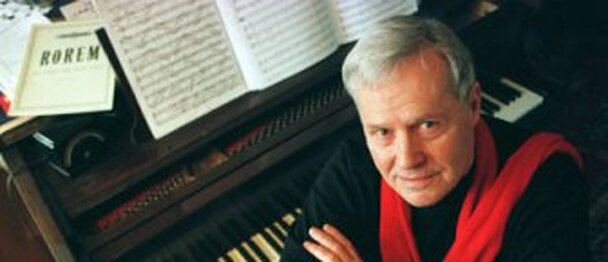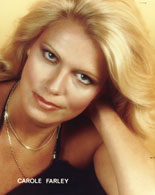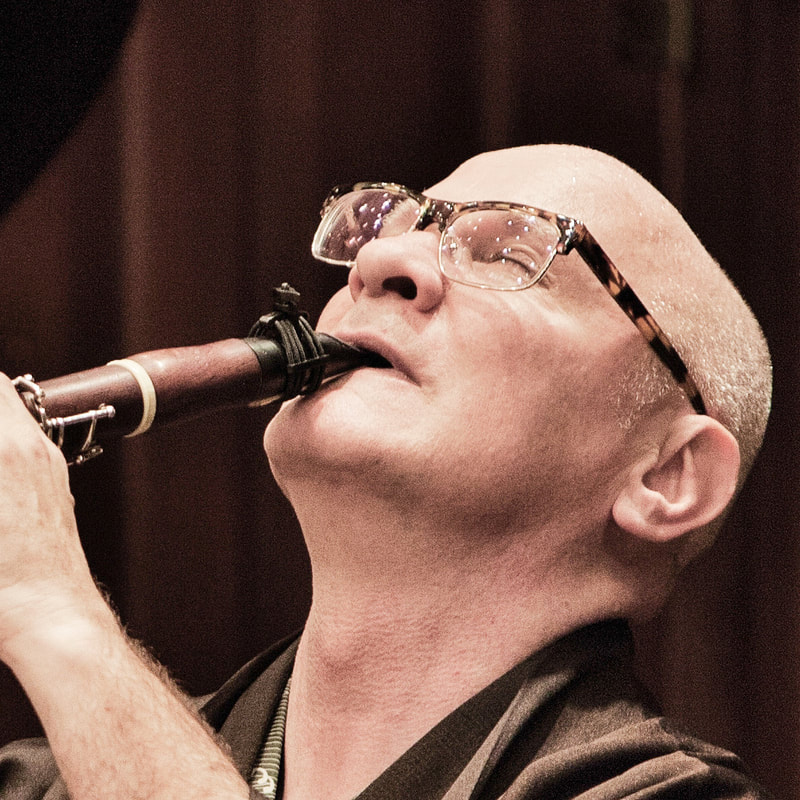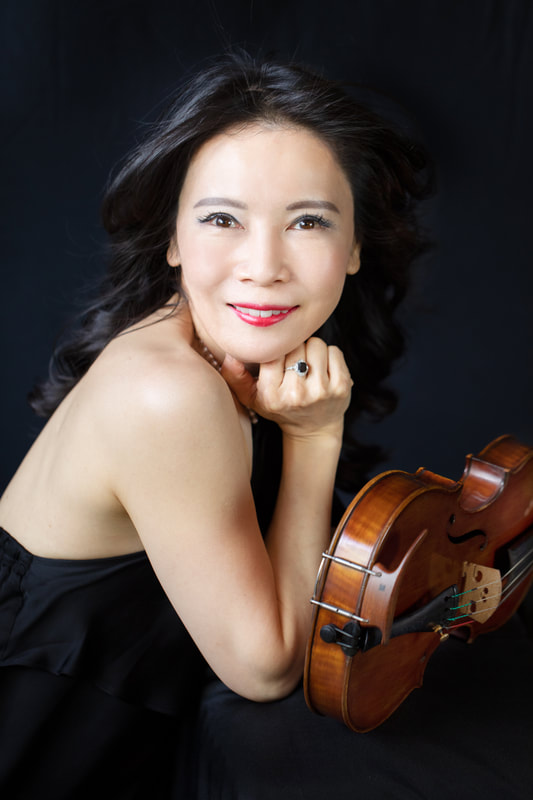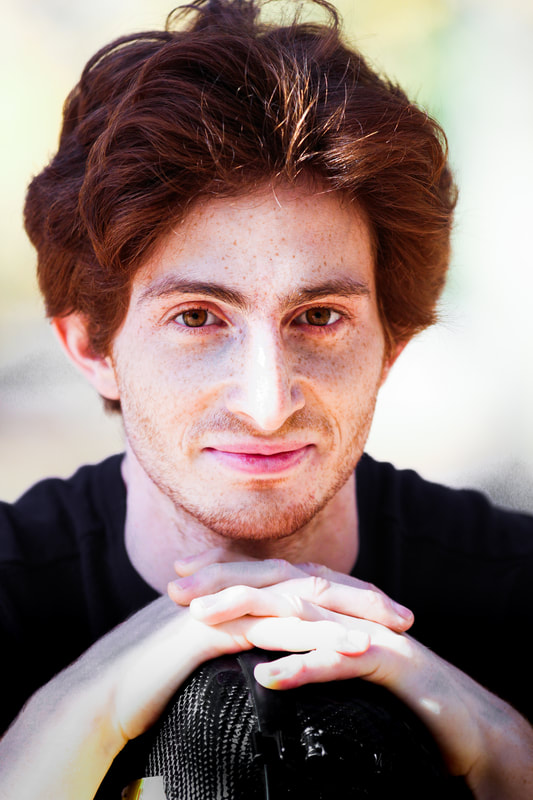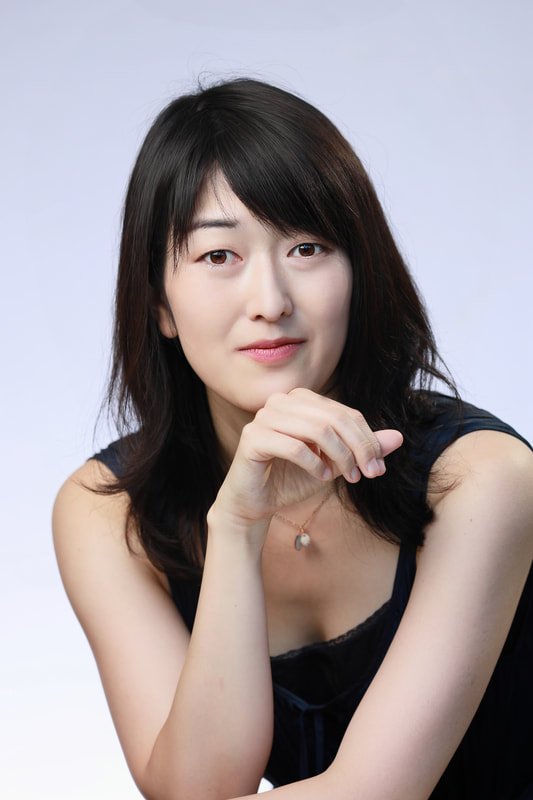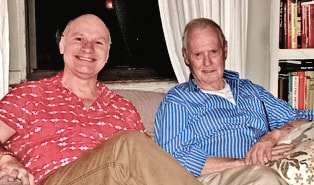ROREM at 100 - A Concert Celebration with clarinetist Thomas Piercy
|
ROREM at 100 A Concert Celebration with clarinetist Thomas Piercy and Special Guest soprano Carole Farley with Eiko Kano, violin Aaron Wolff, cello Marina Iwao , piano |
Music of Ned Rorem Vocal selections for soprano and piano Early in the Morning (text: Robert Hillyer) (1958) My Papa’s Waltz (text: Theodore Roethke) (1963) O You Whom I Often and Silently Come (text: Walt Whitman) (1961) "Nine Episodes for Four Players" (2001) for clarinet, violin, cello, and piano "Mazurka" (from “End of Summer”) (1985) for clarinet, violin, and piano “Four Colors" (2003) for clarinet and piano Composed for Thomas Piercy “90 Notes for Ned” Music written for Ned’s birthday concerts by former students: Jennifer Higdon “90 for Ned” (A Gentle Notion) Eli Marshall “90 Notes for Ned” Troy Peters “Gymnopedie” (90 Notes for Ned) Russell Platt “Anecdote of the Jar” (90 Notes for Ned) Paul Anthony Romero “Memory & Nelody pour N.R.” |
Oct. 22, 2023 at 6pm Martha Graham Studio Theater 55 Bethune St., 11th floor New York, NY 10014 Tickets: $19.23 Contact: [email protected] |
|
Clarinetist Thomas Piercy presents Rorem at 100 – A Concert Celebration, honoring the 100th birthday of late beloved American composer Ned Rorem on Sunday, October 22nd at 6pm at Martha Graham Studio Theater. Joining this grand celebration will be special guest soprano Carole Farley, with violinist Eiko Kano, cellist Aaron Wolff, and pianist Marina Iwao.
The program will showcase vocal and instrumental music of Ned Rorem, and “90 Notes for Ned” - music composed for Thomas Piercy for Rorem’s birthday concerts by his former students: Jennifer Higdon, Eli Marshall, Troy Peters, Russell Platt, and Paul Anthony Romero. Harmonizing Artistry: The Enduring Partnership of Ned Rorem and Clarinetist Thomas Piercy In the realm of contemporary classical music, collaborations between composers and performers often give birth to innovative and profoundly moving works. Among these creative unions, the partnership between composer Ned Rorem and clarinetist Thomas Piercy stands as a testament to the enduring power of artistic synergy. At the heart of this collaboration lies the remarkable composition Four Colors, a piece conceived by Rorem specifically for Piercy and premiered at Carnegie Hall’s Weill Recital in 2003 in honor of Rorem’s 80th birthday. This work, like many in Rorem's repertoire, reflects his remarkable ability to encapsulate complex emotions and vivid imagery through music. Four Colors does precisely this, taking listeners on an evocative journey through a spectrum of emotions and tonal landscapes. One of the defining characteristics of this partnership is the meticulous attention to detail that Piercy brings to Rorem's compositions. Under the supervision of the composer himself, Piercy has undertaken the task of bringing Rorem's music to life in stunning recordings and captivating performances. This dedication to realizing Rorem's artistic vision has resulted in interpretations that resonate deeply with audiences. Piercy's commitment to Rorem's music is not limited to performance alone. He has also worked closely with the composer in a collaborative capacity, gaining insights and perspectives that enrich his interpretations. This collaborative spirit is a hallmark of their partnership, showcasing the mutual respect and artistic camaraderie that developed over the years. The recordings and performances of Rorem's compositions by Piercy are not mere renditions but rather profound interpretations. They offer listeners a chance to experience Rorem's musical language through the lens of a clarinetist who has absorbed the essence of the composer's vision. Their partnership serves as a reminder of the transformative power of music and the lasting bonds it can create. We are reminded that great music is not confined to the notes on the page but is brought to life through the passion, dedication, and shared artistic vision of composer Ned Rorem, clarinetist Thomas Piercy, and their colleagues and friends soprano Carole Farley, violinist Eiko Kano, cellist Aaron Wolff, and pianist Marina Iwao. Soprano Carole Farley had a long-time friendship and professional relationship with Ned Rorem, including her recording of Rorem songs with the composer at the piano. GRAMMY®-nominated Carole Farley made her Metropolitan Opera début at the age of nineteen in the title rôle of Lulu (the Met’s first production), a role she has repeated over a hundred times. Carole Farley returned to the Metropolitan Opera for the title role in Lady Macbeth of Mtsensk by Shostakovich, the only non-Russian in the cast. Her more than a hundred performances of Salome in opera houses around the world have been highly acclaimed. As a regular guest of the world’s opera houses, she has performed at the Lyric Opera of Chicago, Canadian Opera, Oper der Stadt Köln, New York City Opera, Welsh National Opera, Teatro Colón in Buenos Aires, and in Zürich, Düsseldorf, Paris, Turin, Lyons, Brussels, Nice and Florence, and many other cities. Her performances of Poulenc’s La voix humaine and Menotti’s The Telephone have been filmed by Decca in co-production with the BBC, and now re-issued on DVD, a bestseller in the New York Times charts. To celebrate the Kurt Weill centennial she sang a series of concerts with the Bamberger Symphoniker and the BBC Symphony Orchestra and a recital in Miami in which she traced the steps of his musical journey from Berlin to Broadway to Hollywood. Carole Farley’s orchestral appearances have included most of the leading orchestras in the United States, including the New York Philharmonic, Boston, Pittsburgh and Baltimore Symphonies, Philadelphia, Cleveland and Minnesota orchestras, and the National Symphony, with conductors Levine, Mehta, Skrowaszewski, Dorati, Kostelanetz, Zinman and Sir Andrew Davis. Her European orchestra concerts include the BBC Symphony, BBC Philharmonic, Hallé Orchestra, Royal Philharmonic, Concertgebouw, Orchestre National de France and the Radio Orchestras of Brussels, Paris, Turin, Cologne, Rome, The Hague, Helsinki and Barcelona, with Levine, Boulez, Martinon, Bertini, Santi, Pritchard, Maazel, Downes, Salonen, Davis, Foster, Leitner, Fiore, and others. Her extensive discography includes over fifty titles, with multiple awards including the Grand Prix du Disque, Deutsche Schallplatten Award, Gramophone Editor’s Choice, Gramophone’s CD of the Month, GRAMMY® nominations, and many others. Recent recordings include three Kurt Weill CDs, including the world première recording of Der Neue Orpheus, a bestseller Naxos CD of Ned Rorem songs with the composer at the piano, songs by Ernesto Lecuona, orchestral CDs of songs by Richard Strauss, Edvard Grieg, Delius and arias by Tchaikovsky, as well as her CD of Songs by William Bolcom, accompanied at the piano by the composer, recipient of two GRAMMY® nominations in 2006. |
Ned Rorem, hailed as “the world’s best composer of art songs” (Time magazine), is celebrated for his immense catalog of musical compositions as well as his acclaimed body of literary writing, including five volumes of diaries and collections of lectures and criticism. a Pulitzer Prize and GRAMMY Award—includes three symphonies, four piano concertos, and an array of other orchestral works; music for numerous combinations of chamber forces; ten operas; choral works of every description; ballets and other music for the theater; and literally hundreds of songs and cycles.
During his lifetime, Rorem was honored with a Fulbright Fellowship (1951), a Guggenheim Fellowship (1957), and an award from the National Institute of Arts and Letters (1968). He received the ASCAP-Deems Taylor Award in 1971 for his book Critical Affairs, A Composer's Journal, in 1975 for The Final Diary, and in 1992 for an article on American opera in Opera News. His orchestral suite Air Music won the 1976 Pulitzer Prize in music. The Atlanta Symphony recording of the String Symphony, Sunday Morning, and Eagles received a Grammy Award for Outstanding Orchestral Recording in 1989. In 1998 he was named Composer of the Year by Musical America. He served as President of the American Academy of Arts and Letters from 2000-2003. In 2001 he was named a Chevalier de l’Ordre des Arts et Des Lettres by France for his contribution to the enrichment of the French cultural inheritance. In 2003 he was awarded the Gold Medal in Music, for an entire body of work, by the Academy of Arts and Letters; and also received ASCAP’s Lifetime Achievement Award.
Rorem’s music was commissioned by many of the world’s most prestigious institutions, including the Ford Foundation (Poems of Love and the Rain, 1962), Lincoln Center Foundation (Sun, 1965); Koussevitzky Foundation (Letters from Paris, 1966); Atlanta Symphony (String Symphony, 1985); Chicago Symphony Orchestra (Goodbye My Fancy, 1990); Carnegie Hall (Spring Music, 1991); the New York Philharmonic (Concerto for English Horn and Orchestra, 1993); and the Philadelphia Orchestra (Flute Concerto, 2002). Rorem's final opera, Our Town, a setting of Thorton Wilder’s acclaimed play, premiered at the Indiana University Jacob's School of Music in 2006. Among the distinguished conductors who performed his music were Bernstein, Masur, Mehta, Mitropoulos, Ormandy, Previn, Reiner, Slatkin, Steinberg, and Stokowski.
The Ned Rorem Archives are at the Library of Congress, Music Division, Washington DC.
Ned Rorem is published by Boosey & Hawkes.
— September 2023
Reprinted by kind permission of Boosey & Hawkes.
During his lifetime, Rorem was honored with a Fulbright Fellowship (1951), a Guggenheim Fellowship (1957), and an award from the National Institute of Arts and Letters (1968). He received the ASCAP-Deems Taylor Award in 1971 for his book Critical Affairs, A Composer's Journal, in 1975 for The Final Diary, and in 1992 for an article on American opera in Opera News. His orchestral suite Air Music won the 1976 Pulitzer Prize in music. The Atlanta Symphony recording of the String Symphony, Sunday Morning, and Eagles received a Grammy Award for Outstanding Orchestral Recording in 1989. In 1998 he was named Composer of the Year by Musical America. He served as President of the American Academy of Arts and Letters from 2000-2003. In 2001 he was named a Chevalier de l’Ordre des Arts et Des Lettres by France for his contribution to the enrichment of the French cultural inheritance. In 2003 he was awarded the Gold Medal in Music, for an entire body of work, by the Academy of Arts and Letters; and also received ASCAP’s Lifetime Achievement Award.
Rorem’s music was commissioned by many of the world’s most prestigious institutions, including the Ford Foundation (Poems of Love and the Rain, 1962), Lincoln Center Foundation (Sun, 1965); Koussevitzky Foundation (Letters from Paris, 1966); Atlanta Symphony (String Symphony, 1985); Chicago Symphony Orchestra (Goodbye My Fancy, 1990); Carnegie Hall (Spring Music, 1991); the New York Philharmonic (Concerto for English Horn and Orchestra, 1993); and the Philadelphia Orchestra (Flute Concerto, 2002). Rorem's final opera, Our Town, a setting of Thorton Wilder’s acclaimed play, premiered at the Indiana University Jacob's School of Music in 2006. Among the distinguished conductors who performed his music were Bernstein, Masur, Mehta, Mitropoulos, Ormandy, Previn, Reiner, Slatkin, Steinberg, and Stokowski.
The Ned Rorem Archives are at the Library of Congress, Music Division, Washington DC.
Ned Rorem is published by Boosey & Hawkes.
— September 2023
Reprinted by kind permission of Boosey & Hawkes.
|
Texts
Early in the Morning by Robert Hillyer Early in the morning Of a lovely summer day, As they lowered the bright awning At the outdoor café, I was breakfasting on croissants And café au lait Under greenery like scenery, Rue François Premier. They were hosing the hot pavement With a dash of flashing spray And a smell of summer showers When the dust is drenched away, Under greenery like scenery, Rue François Premier. I was twenty and a lover And in Paradise to stay, Very early in the morning Of a lovely summer day. O You Whom I Often and Silently Come by Walt Whitman O you whom I often and silently come where you are that I may be with you, As I walk by your side or sit near, or remain in the same room with you, Little you know the subtle electric fire that for your sake is playing within me. My Papa’s Waltz by Theodore Roethke The whiskey on your breath Could make a small boy dizzy; But I hung on like death: Such waltzing was not easy. We romped until the pans Slid from the kitchen shelf; My mother’s countenance Could not unfrown itself. The hand that held my wrist Was battered on one knuckle; At every step you missed My right ear scraped a buckle. You beat time on my head With a palm caked hard by dirt, Then waltzed me off to bed Still clinging to your shirt. |
